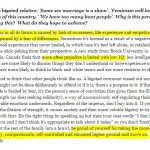In Albury-Wodonga, the weekly free newspapers used to include a column of reflections. They were written by local ministers, or similar (authors included a local Baha’i leader, as well as someone from the local humanist society branch). I don’t know why they stopped. Equally, I don’t know if they achieved anything!
Cleaning up my computer, I found a few of mine. In the interests of recycling, I will re-release them on this blog.
‘The building’s on fire.’ I’m glad no one has ever yelled that at me. But if they did I would definitely react.
There are plenty of times when we must react to news. Times when it would be wrong to do nothing.
If your daughter tells you she’s engaged it’s time to celebrate.
If you attend a funeral you know it’s time to mourn.
Imagine if you told someone, ‘I love you’ and all they did was look at you blankly. You’d know something was wrong. That’s true for God’s truth too.
If what God says is right we have to respond. The Bible says, for example, that Jesus is alive from the dead. That’s some news! It also says that Jesus is the one who will judge each of us at life’s end. We need to be ready.
What is the right response to God’s news? It is to trust and follow Jesus. Trust means to take God at his word, and therefore to live by that word.
So how should you respond to God’s truth? Perhaps you need to investigate if it is true. Or perhaps you have found out but now need to respond with trust.
Since I’m writing about making a response, I want to do something a bit unusual for a Reflections column – give you a chance to react. If you’d like a free New Testament part of the Bible, so you can read about Jesus for yourself, send me an email (minister@alburybiblechurch.com.au). This address is only for this column, and I promise to send nothing but this part of the Bible.
The important thing, of course, is not that you respond to me. It’s that you respond to Jesus. The truth about Jesus changes everything – and that includes changing you and me.
March 2008

